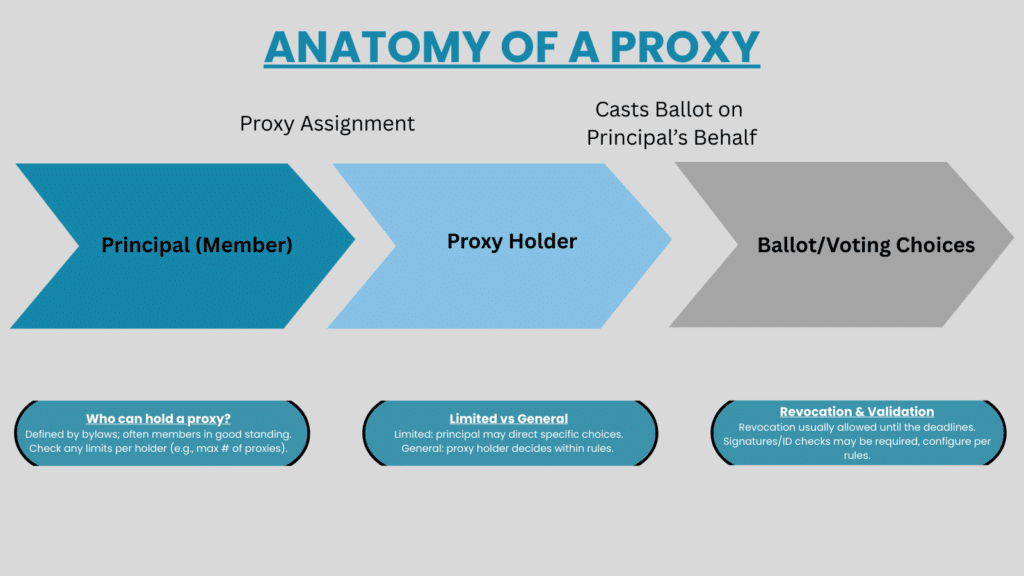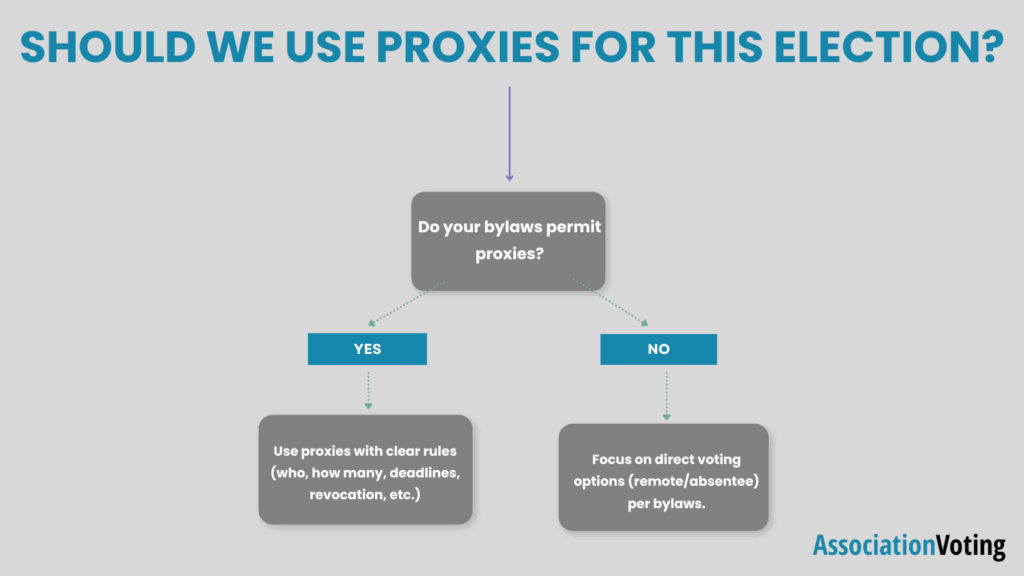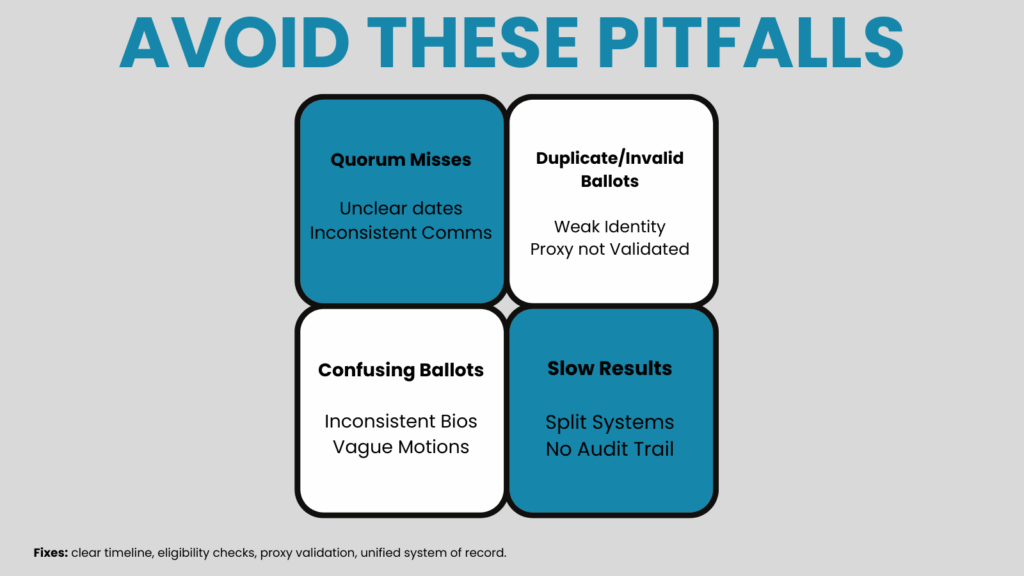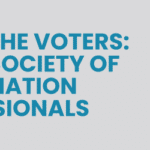Board elections shouldn’t feel like a fire drill. With the right process and tools, associations, HOAs/POAs, and membership groups can run clean, compliant elections that hit quorum, protect member trust, and deliver results fast.
This first article from AV’s “Guide: How to Streamline Board Elections and Proxy Voting for Associations” explains why proxy voting exists, when to use it, and the most common pitfalls to avoid.

Why Proxy Voting Matters (& When You Should Use It)
Proxy voting allows a member (the “principal”) to authorize another person (the “proxy holder”) to vote on their behalf.
A proxy answers two questions:
- To whom has the voter granted his/her franchise?
- What is the extent of the grant?
It’s especially useful when:
- Members are geographically dispersed or have limited availability.
- Your bylaws allow proxy representation to reach quorum.
- Meetings require in‑person or synchronous participation, but attendance is unpredictable.

Common Pain Points to Prevent
- Quorum misses: limited and inconsistent communications and unclear deadlines reduce turnout.
- Duplicate or invalid ballots: weak identity checks, unclear proxy validation, and manual tabulation errors.
- Confusing ballots: inconsistent candidate info, vague motions, or poor mobile experience.
- Slow results: manual counts across paper + online channels with no unified audit

Key takeaway? Clarity on rules, quorum, and proxy use is the foundation of trust. In Part 2, we’ll turn this into a practical playbook—timelines, design tips, communications, and checklists you can use to make your own.
Always follow your bylaws and applicable laws. Proxy rules (e.g., who may hold proxies, how many, deadlines, revocation) vary by jurisdiction and organization type. This series is general guidance, not legal advice.




